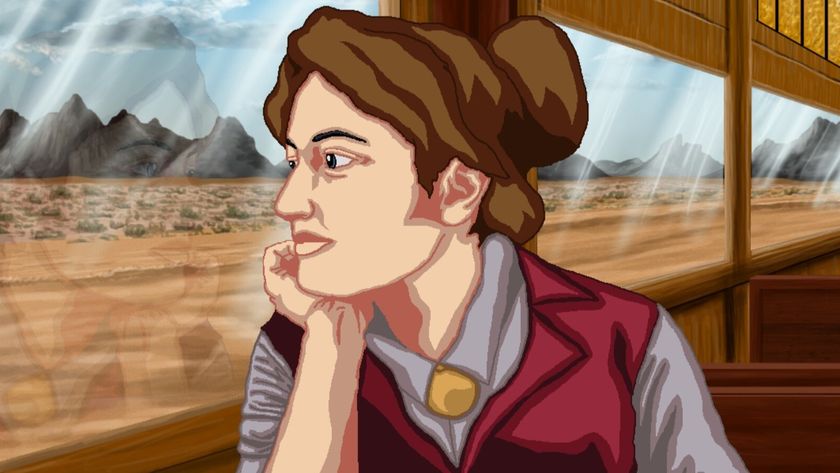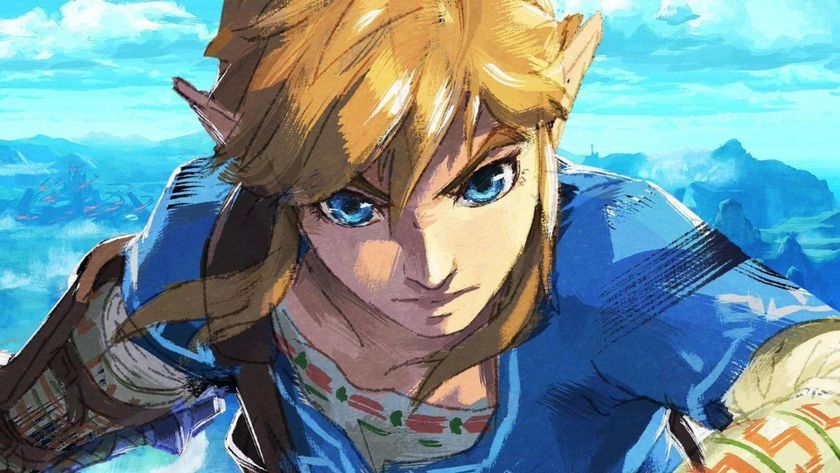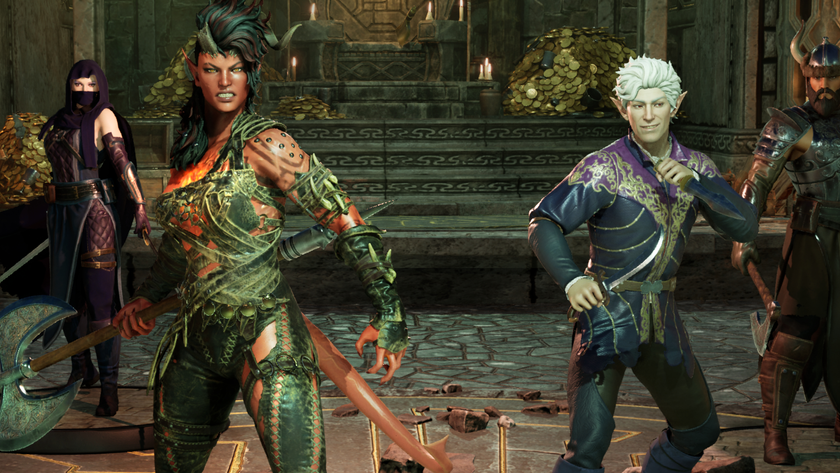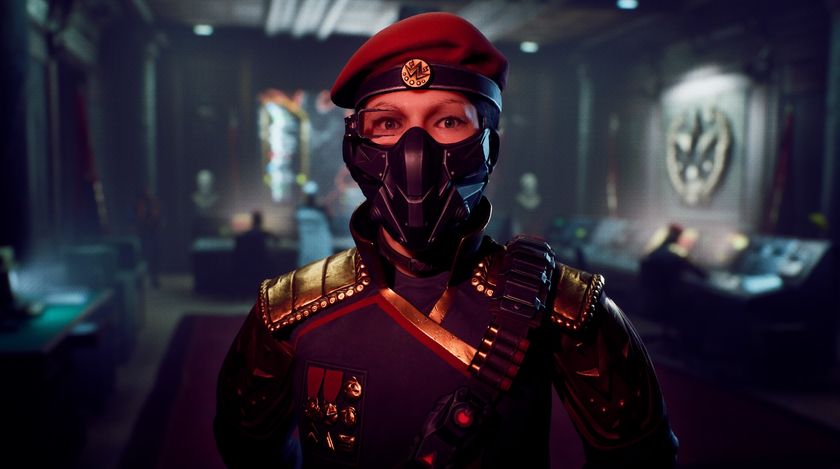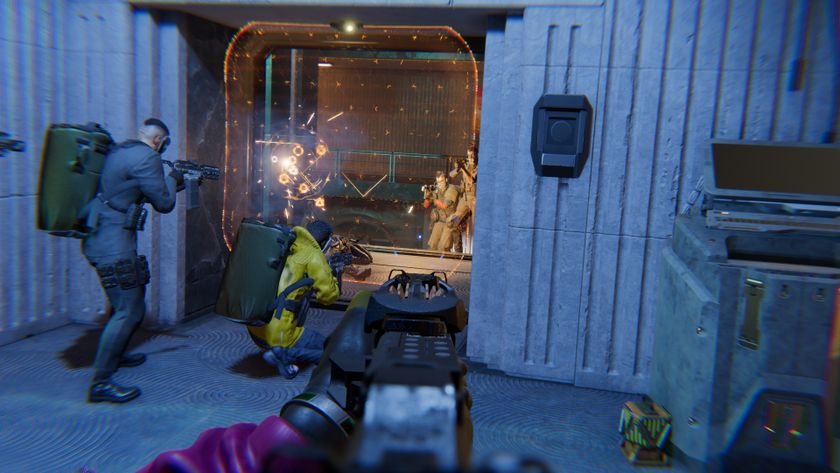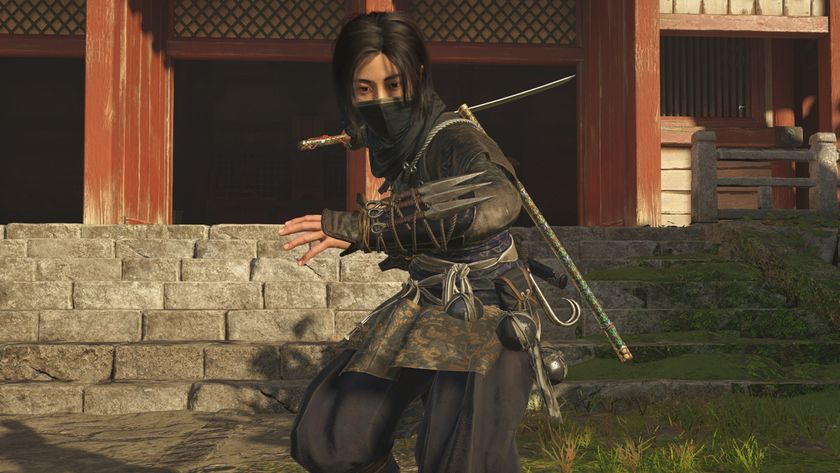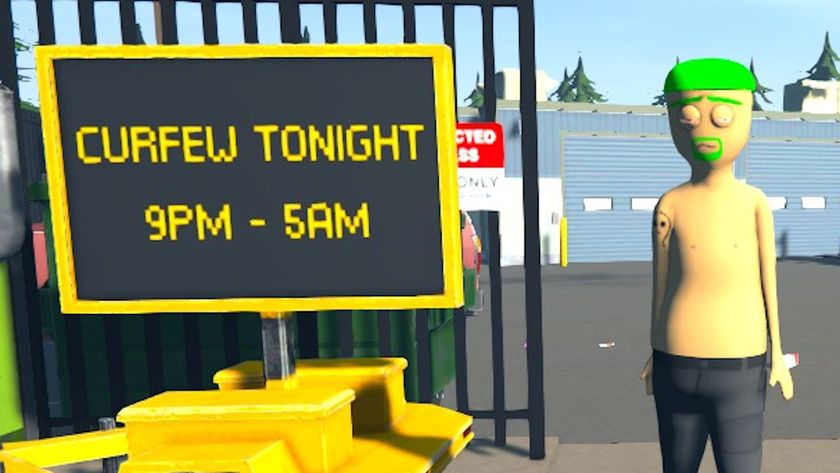Broken Sword 5 interview: Charles Cecil on Gnostic Gospels, conspiracies and religion
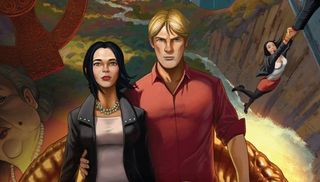
"Himmler sent a load of archaeologists to try and find the Holy Grail in the castle and clearly they failed - or we assume they failed."
Broken Sword creator Charles Cecil and I are talking about the research that went into the latest instalment, Broken Sword 5: The Serpent's Curse . There is a chance we were supposed to be talking about polygons and game mechanics in the Kickstarter-funded project but the interview ended up addressing the nature of personal belief and truth as they relate to Cecil's latest adventure.
The Serpent's Curse begins with a murder and the theft of a painting by a pizza delivery man. In attempting to unravel the mystery, series heroes George and Nico must pick through a conspiracy involving the Catholic church and Gnosticism. Take into account the art gallery murders, Catholicism, apocryphal literature and you'd be forgiven for thinking, "So, it's like the Da Vinci Code, then." But Cecil, amongst other things, worked as a consultant on the Da Vinci Code video game having researched the subject.
"I tried to tell the Da Vinci Code film guys that it was nonsense but they didn't listen to me. I said to the art director, 'Look, honestly, the Priory of Sion doesn't exist - it's nonsense.' He looked at me and said, 'That's what they want you to think.'"
But where Cecil's research and critical judgement puts The Da Vinci Code in the fact category marked "utter bobbins", he is keen to point out that The Serpent's Curse strives for factual accuracy wherever possible. The game plot relates to writings regarding Christianity and the Bible, but which exist outside Biblical canon, called the Gnostic Gospels. More specifically, Cecil is referencing the set of texts discovered in Egypt in 1945 which includes the Testimony of Truth.
"What I loved about the Testimony of Truth is the bit where they have the Genesis story," says Cecil. "In that the serpent is told from the serpent's perspective and they mock our Christian god. They mock him and they say God thought he knew everything but if he did he wouldn't have needed to ask Adam where he was.
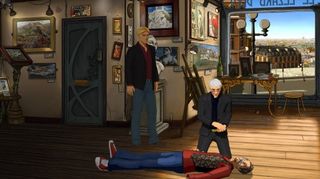
"This really got me thinking - and of course 'lux ferre', the bringer of light, is the derivation of Lucifer so Lucifer is the bringer of light. You scratch the surface and there's so much. If you're Christian I think you have to have blind faith, pretty much, because there are lots of things that don't quite make sense - that's my view. I live in York next to the York Minster and I love going to church. I love the high church and I really respect religion but I don't believe a word of it."
The biggest gaming news, reviews and hardware deals
Keep up to date with the most important stories and the best deals, as picked by the PC Gamer team.
Cecil's fascination with Testimony of Truth is apt as the nature of truth and how it manifests in the game are topics we repeatedly come back to during the interview. "Legitimacy is very important," he says. "The Priory of Sion is clearly nonsense and a lot of stuff on the internet is clearly nonsense but it's difficult to sort the nonsense from what actually had some basis in truth."
As an example, The Serpent's Curse begins in a Parisian street called Rue d'Orsel. "A number of people will go and they'll be disappointed if it isn't in the correct place relative to the map," says Cecil. A similar attention to detail comes later in the game where the game designers suggested fudging some of the details of a location map for convenience and Cecil point-blank refused the idea.
"Most people won't care but a few people will go to a map and go, 'My God, that really is true!' It's the legitimacy that will then make the story feel more real. If we talk about facts - the fact Montségur [the castle which had attracted Himmler's attention] was attacked in 1244 - that is true history. The moment you start making up history you might as well make everything up. and of course it's the old cliché - facts are much stranger than fiction."
As Cecil explains it, the game takes a dualist perspective, similar to that found frequently in Gnosticism. "Our stance is that you have two powerful forces that are not gods. They exist but not as gods - the power of life and the power of knowledge with man in between. The 'between' is what gives man strength and free will - that's the core message through the whole thing and it pulls through the history of Montségur, it pulls on the strength of the Gnostic Gospels, it pulls on all those things."
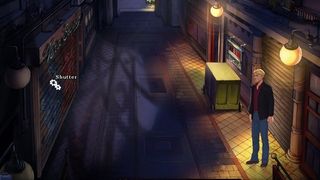
The logical question, given this emphasis on truth and meaning, is whether the game reflects Cecil's own views. "Yes, of course. Very much so, because I can only write a story that excites me and I hope it excites other people [...] It makes perfect sense and it also explains to me, because I really do take religion very seriously, it explains where we've got to and why we've got there. Clearly we've got hundreds of millions of people all with different views but to me it makes sense."
But at some point, this means that the painstaking research and the presentation of fact gives way to a personal belief in a type of dualism. I ask whether that tension worried Cecil at any point. "No, but perhaps it should do," is the response. "I think we're used to hearing people's points of view and I think if people's points of view are challenged that can't be a bad thing. Can it?"
Is the game, then, to be thought of as a challenge? Cecil hopes so and mentions the furious response he received when presenting the research and ideas to a Christian Alpha study group. "I tried to temper the whole thing by saying this is what I've discovered and this is what I've learnt. I'm not saying how much is true but clearly a lot of this is factually based."

Cecil is a believer in objective truth - an independent truthfulness that exists outside the observer - but doesn't claim that his game represents such a thing. "I wouldn't like to say where the truth stops and ends - but we're not making any statements, just saying that the Cathars did exist, that they were Gnostics, that the Gnostics believed in the god who created life and a god that was spiritual."
As a final question I ask whether Cecil thinks games make it easier to broach thorny subject such as systems of religious belief.
"That's a really great question and I really don't know," he answers. "You either have a documentary where you're purporting to claim something's truthful or you're creating entertainment. In the same way Indiana Jones introduced the idea of the Knight's Templar or the Ark of the Covenant in Raiders of the Lost Ark - if you're claiming it's fiction you can be much more interesting in what you're exploring and non-confrontational because you're saying it's a story and these people believed it. I don't think it's any more powerful in a game or less powerful in a game than in a film.
"It's quite clear what the facts are and they are facts - the crusade, the sacking of Béziers, the attack on Montségur - all of that stuff is fact. You then sprinkle some ideas and hopefully people will draw a range of conclusions. Hopefully they will be amused by the characters and the dialogue and intellectually excited by some of the themes as well."
The first part of Broken Sword: The Serpent's Curse is out today.
